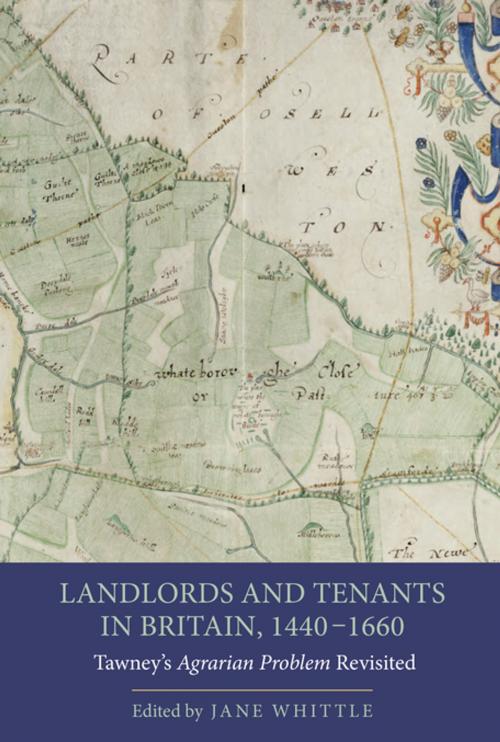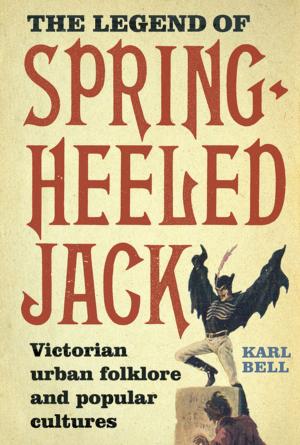Landlords and Tenants in Britain, 1440-1660
Tawney's Agrarian Problem Revisited
Business & Finance, Economics, Economic History, Nonfiction, History, Modern| Author: | ISBN: | 9781782044451 | |
| Publisher: | Boydell & Brewer | Publication: | August 15, 2013 |
| Imprint: | Boydell Press | Language: | English |
| Author: | |
| ISBN: | 9781782044451 |
| Publisher: | Boydell & Brewer |
| Publication: | August 15, 2013 |
| Imprint: | Boydell Press |
| Language: | English |
This volume revisits a classic book by a famous historian: R.H. Tawney's Agrarian Problem in the Sixteenth Century (1912). Tawney's Agrarian Problem surveyed landlord-tenant relations in England between 1440 and 1660, the period of emergent capitalism and rapidly changing property relations that stands between the end of serfdom and the more firmly capitalist system of the eighteenth century. This transition period is widely recognised as crucial to Britain's long term economic development, laying the foundation for the Industrial Revolution of the eighteenth century. Remarkably, Tawney's book has remained the standard text on landlord-tenant relations for over a century. Here, Tawney's book is re-evaluated by leading experts in agrarian and legal history, taking its themes as a departure point to provide for a new interpretation of the agrarian economy in late Tudor and early modern Britain. The introduction looks at how Tawney's Agrarian Problem was written, its place in the historiography of agrarian England and the current state of research. Survey chapters examine the late medieval period, a comparison with Scotland, and Tawney's conception of capitalism, whilst the remaining chapters focus on four issues that were central to Tawney's arguments: enclosure disputes, the security of customary tenure; the conversion of customary tenure to leasehold; and other landlord strategies to raise revenues. The balance of power between landlords and tenants determined how the wealth of agrarian England was divided in this crucial period of economic development - this book reveals how this struggle was played out. JANE WHITTLE is professor of rural history at Exeter University. Contributors: Christopher Brooks, Christopher Dyer, Heather Falvey, Harold Garrett-Goodyear, Julian Goodare, Elizabeth Griffiths, Jennifer Holt, Briony McDonagh, Jean Morrin, David Ormrod, William D. Shannon, Jane Whittle, Andy Wood. Foreword by Keith Wrightson
This volume revisits a classic book by a famous historian: R.H. Tawney's Agrarian Problem in the Sixteenth Century (1912). Tawney's Agrarian Problem surveyed landlord-tenant relations in England between 1440 and 1660, the period of emergent capitalism and rapidly changing property relations that stands between the end of serfdom and the more firmly capitalist system of the eighteenth century. This transition period is widely recognised as crucial to Britain's long term economic development, laying the foundation for the Industrial Revolution of the eighteenth century. Remarkably, Tawney's book has remained the standard text on landlord-tenant relations for over a century. Here, Tawney's book is re-evaluated by leading experts in agrarian and legal history, taking its themes as a departure point to provide for a new interpretation of the agrarian economy in late Tudor and early modern Britain. The introduction looks at how Tawney's Agrarian Problem was written, its place in the historiography of agrarian England and the current state of research. Survey chapters examine the late medieval period, a comparison with Scotland, and Tawney's conception of capitalism, whilst the remaining chapters focus on four issues that were central to Tawney's arguments: enclosure disputes, the security of customary tenure; the conversion of customary tenure to leasehold; and other landlord strategies to raise revenues. The balance of power between landlords and tenants determined how the wealth of agrarian England was divided in this crucial period of economic development - this book reveals how this struggle was played out. JANE WHITTLE is professor of rural history at Exeter University. Contributors: Christopher Brooks, Christopher Dyer, Heather Falvey, Harold Garrett-Goodyear, Julian Goodare, Elizabeth Griffiths, Jennifer Holt, Briony McDonagh, Jean Morrin, David Ormrod, William D. Shannon, Jane Whittle, Andy Wood. Foreword by Keith Wrightson















